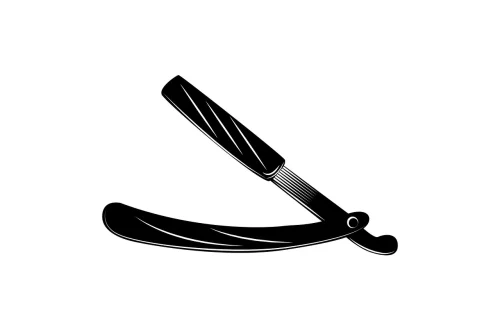
Why Does My Dog Smell Like Fish and What Can I Do About It?
Dogs are beloved companions that bring joy and warmth to our lives. However, there are times when our furry friends can emit unpleasant odors that leave us puzzled and concerned. One particularly surprising scent that some dog owners encounter is a fishy smell. This phenomenon can be alarming, prompting questions about its cause and what steps can be taken to address it. While it may seem trivial, understanding the reasons behind this smell is essential for maintaining your dog’s health and well-being.
Just as humans can have varied body odors influenced by diet, hygiene, and health, dogs are no different. A fishy smell can be indicative of several underlying issues, ranging from dietary factors to skin conditions. Being aware of these potential causes helps dog owners take proactive measures to ensure their pets remain healthy and happy. Additionally, it can guide them on how to address the problem effectively.
In the following sections, we will delve into some of the most common reasons why your dog might smell like fish and provide actionable tips on how to remedy the situation. Whether you’re a new dog owner or a seasoned pet parent, this guide will equip you with the knowledge you need to understand and manage this puzzling odor.
Common Causes of Fishy Odors in Dogs
One of the primary reasons for a fishy smell in dogs is related to their diet. Just like humans, dogs can have body odors that are influenced by what they consume. Certain foods, especially those high in fish or fish-based ingredients, can lead to a distinct fish-like smell. This is particularly common in dog foods that contain fish meal or fish oil as primary ingredients. While these components are often included for their nutritional benefits, they can contribute to a noticeable odor in your pet.
Another significant cause of a fishy smell in dogs is poor dental hygiene. Dogs can develop dental issues, like periodontal disease, which can lead to bad breath and unpleasant odors. When bacteria accumulate in the mouth, they can produce a foul smell that may resemble fish. Regular dental care, including brushing your dog’s teeth and providing dental chews, can help mitigate this issue.
Skin infections are another common culprit. Dogs can suffer from various skin conditions, including bacterial or yeast infections. These infections can create a strong, fishy odor, especially in areas where moisture accumulates, such as the ears, paws, or skin folds. If you notice that your dog has a fishy smell along with signs of irritation, redness, or excessive scratching, it may be time to consult your veterinarian for a thorough examination.
Additionally, anal gland issues can lead to a fishy odor. Dogs have two small glands located near their anus that can become impacted or infected, causing a strong, unpleasant smell. If your dog is scooting on the ground or excessively licking the area, it may indicate a problem with their anal glands. Regular check-ups at the vet can help prevent and address these issues.
In summary, the fishy smell in dogs can stem from various sources, including diet, dental hygiene, skin infections, and anal gland problems. Identifying the root cause is essential for effectively addressing the issue and ensuring your dog’s overall health.
How to Maintain Your Dog’s Hygiene
To combat fishy odors in dogs, maintaining proper hygiene is crucial. Regular grooming plays a significant role in keeping your dog clean and fresh. Bathing your dog with a gentle, pet-safe shampoo can help remove dirt, oils, and odors from their coat. However, it’s important not to over-bathe your dog, as this can strip natural oils and lead to skin issues. For most dogs, a bath every few weeks is sufficient, but this can vary based on breed and activity levels.
In addition to bathing, regular brushing is essential. Brushing your dog’s coat helps remove loose hair, dirt, and debris, which can contribute to odors. For long-haired breeds, frequent brushing is particularly important to prevent matting and tangles, which can trap moisture and odors.
Oral hygiene is another vital aspect of your dog’s overall cleanliness. Regular teeth brushing can significantly reduce bad breath and the risk of dental disease. If your dog is resistant to having their teeth brushed, consider dental treats or toys designed to promote oral health. These can help reduce plaque and tartar buildup while freshening your dog’s breath.
Paying attention to your dog’s ears is also important, as they can be a source of odors if not cleaned regularly. Dogs with floppy ears or those that swim frequently are particularly prone to ear infections. Gently cleaning your dog’s ears with a veterinarian-recommended solution can help prevent infections and reduce odors.
Lastly, regular vet visits are essential. Your veterinarian can provide professional grooming advice, dental cleanings, and check for any underlying health issues that may contribute to unpleasant smells. By establishing a routine that includes good hygiene practices and regular veterinary care, you can help keep your dog smelling fresh and healthy.
Dietary Adjustments to Consider
If your dog has a persistent fishy smell, evaluating their diet may be necessary. As mentioned earlier, certain ingredients can contribute to body odor. If your dog’s food contains a high percentage of fish or fish by-products, consider transitioning to a different formula. Look for high-quality dog foods that list meat as the primary ingredient and avoid those with excessive fish content.
When switching your dog’s food, do so gradually to avoid upsetting their stomach. Mix the new food with the old food over the course of several days, gradually increasing the proportion of the new food. This approach helps your dog adjust to the new diet without digestive issues.
In addition to regular dog food, consider incorporating fresh fruits and vegetables into your dog’s diet as treats. Certain fruits, like apples and blueberries, can help freshen breath and provide additional nutrients. However, always consult your veterinarian before introducing new foods to ensure they are safe and appropriate for your dog.
Hydration is also key. Ensure that your dog has access to fresh, clean water at all times. Proper hydration supports overall health and can help reduce odor.
Lastly, probiotics can be beneficial for your dog’s digestive health. These supplements can help balance the gut flora, potentially reducing odors caused by digestive issues. Again, it’s best to consult with your veterinarian before adding any supplements to your dog’s diet.
By making thoughtful dietary adjustments and focusing on your dog’s nutrition, you can help eliminate the fishy smell and promote better overall health.
When to Seek Veterinary Assistance
While some odors can be managed with proper hygiene and dietary adjustments, there are instances when a fishy smell may indicate a more serious underlying health issue. If you notice that your dog has a persistent odor despite your best efforts to address it, it’s important to seek veterinary assistance.
Signs that warrant a trip to the vet include excessive scratching, redness, swelling, or discharge from the skin, ears, or anal area. If your dog is exhibiting behavioral changes, such as lethargy, loss of appetite, or difficulty in mobility, these could also be signs of a more significant problem.
Your veterinarian can perform a thorough examination to determine the underlying cause of the odor. They may conduct tests to check for skin infections, dental disease, or anal gland issues and recommend appropriate treatments.
Timely intervention is crucial in addressing potential health problems. Early diagnosis and treatment can prevent complications and improve your dog’s quality of life. Always trust your instincts as a pet owner; if something seems off with your dog, don’t hesitate to reach out to your veterinarian for guidance.
In conclusion, while a fishy smell in dogs can be perplexing, understanding its causes and taking proactive steps can help you maintain your pet’s health and comfort. By prioritizing hygiene, evaluating dietary choices, and seeking veterinary advice when necessary, you can ensure that your furry friend remains happy and odor-free.
**Disclaimer**: This article is for informational purposes only and does not constitute medical advice. Always consult your veterinarian for any health-related concerns regarding your pet.




